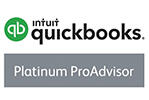MTD deadline accelerated
Whilst the Finance Bill 2021 was relatively low key, one announcement might mean a year has been slashed from a crucial Making Tax Digital (MTD) deadline for many unincorporated businesses. What’s the full story?

A major aim of MTD is to bring the payment date for all taxes closer to when business profits are earned. On the face of it, this makes sense. However, the move has numerous implications for smaller businesses, including additional software and compliance costs. However, an announcement in the latest Finance Bill that all unincorporated businesses will be forced to report taxable profits on a tax year basis may mean that some businesses have seen the additional costs associated with MTD unexpectedly accelerated by twelve months.
Currently, the draft regulations for MTD for income tax stipulate that an unincorporated business must adhere to MTD from the first basis period that begins on or after 6 April 2023. This would mean a sole trader or partnership with a year end of 31 March would be mandated into MTD from 1 April 2024, leaving plenty of time to prepare. However, due to the way the Finance Bill is worded, the new rules will automatically create a new basis period from 6 April 2023, which may bring the MTD compliance date forward by almost twelve months!
It remains to be seen whether any additional transitional rules for affected businesses are announced, but in the meantime it is certainly worth getting a grounding with the MTD overview to avoid being caught on the hop.
Related Topics
-
CT61
-
Repayment thresholds for student finance confirmed
Repaying student finance can seem complicated, with a number of different plan types each having different repayment thresholds. The thresholds for the forthcoming year have just been confirmed. What’s the full story?
-
Advance assurance pilot confirmed
There have been a number of changes to how research and development tax credits are claimed in recent years. HMRC has now confirmed that a pilot of a new clearance procedure will begin later this year. What do we know so far?



 This website uses both its own and third-party cookies to analyze our services and navigation on our website in order to improve its contents (analytical purposes: measure visits and sources of web traffic). The legal basis is the consent of the user, except in the case of basic cookies, which are essential to navigate this website.
This website uses both its own and third-party cookies to analyze our services and navigation on our website in order to improve its contents (analytical purposes: measure visits and sources of web traffic). The legal basis is the consent of the user, except in the case of basic cookies, which are essential to navigate this website.